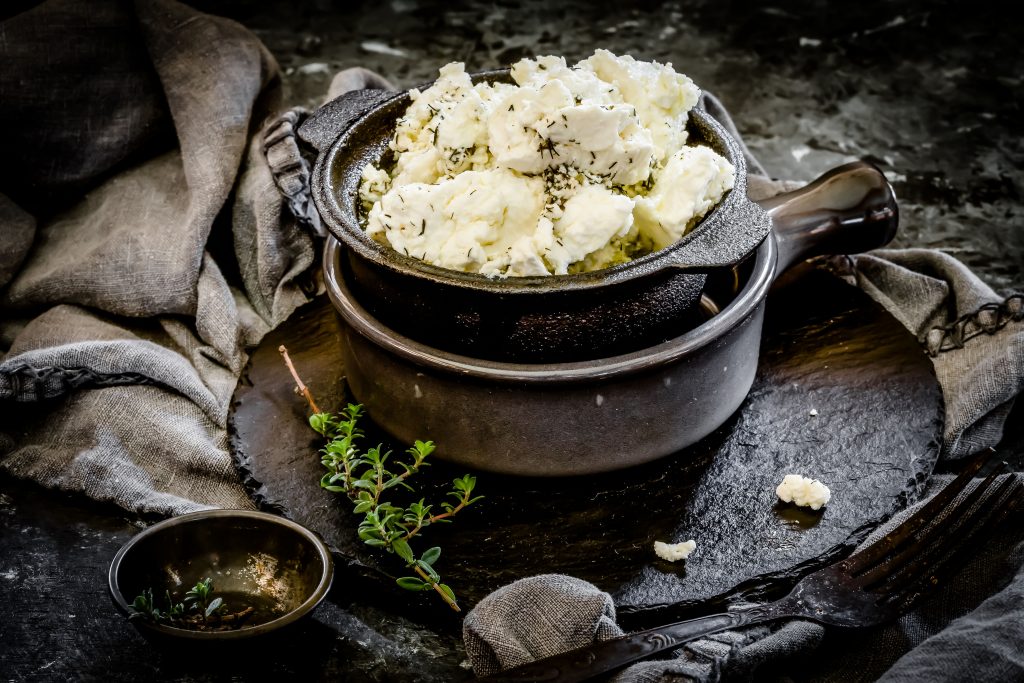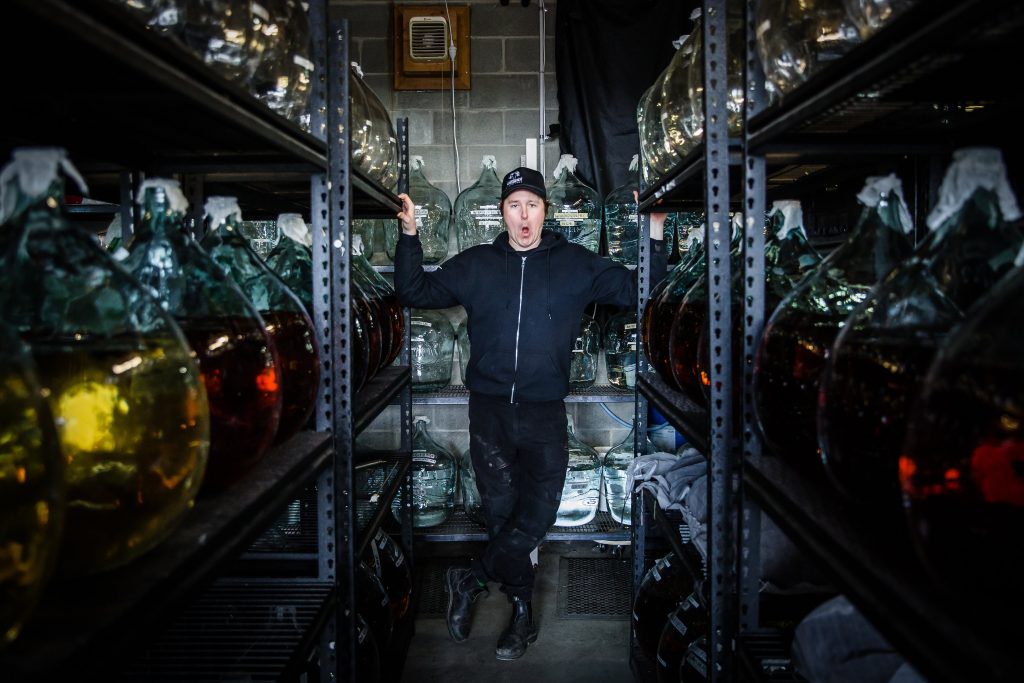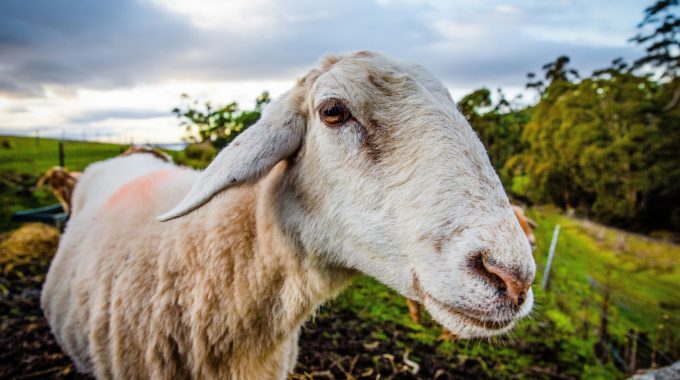Grandvewe Cheese: leading the whey
If you were a sheep, your idea of heaven would be one that involved being allowed to roam freely, munch on tasty plants of all kinds and enjoy the occasional ear scratch from a friendly human. In other words, your idea of heaven would be Grandvewe Farm.
Located 40 minutes south of Hobart, on 80 acres of peaceful farmland overlooking the D’Entrecasteaux Channel and Bruny Island, Grandvewe produces a range of delectable sheep’s milk cheeses from a small but happy flock of dairy sheep who live an idyllic life. They spend their days wandering around, eating weeds and other native plants which Grandvewe grows to add to the sheep’s foraging diet.
“We even have a retirement village for our girls,” says Diane Rae, Grandvewe’s CEO. “Because we have such a small flock, we form such a close relationship with them.”
Grandvewe originally built their business around East Friesland sheep. However, this breed turned out to be prone to health problems. But in 2007, the farm was able to procure a mob of abandoned pure Awassi ewes. This is a rare, Middle-Eastern breed and one of the largest dairy breeds in the world. It also happens to be very robust.
“What we needed was a breed that had that milkability but also robustness,” Rae says. “When we were able to find some Awassi, which were rare as hen’s teeth, we started our breeding program. We created the Grandvewe dairy sheep.”

Getting creative
Grandvewe’s philosophy is that nothing is to be wasted. As such, sheep manure is used as pasture fertiliser and wool and the sheep’s winter bedding are composted. Rams are also allowed to keep their testicles. They enjoy a happy life on the farm before being humanely slaughtered to make delicious Kranksy sausages.
“When we make our Kransky, we want a richer meat,” Rae says. “Bland, everyday meat doesn’t make a rich sausage. So, a smoked Kransky actually lends itself really well to the more robust flavour that you get when the ram still has its hormones going through it.”
The company’s aim to reduce waste doesn’t stop there. Leftover whey from cheesemaking is used to make vodka and gin at Hartshorn Distillery, run by Rae’s son, Ryan Hartshorn.
“It wasn’t part of the idea at the beginning,” Rae admits. “In the beginning was our pinot paste, which goes well with cheese. Then the Kranksy came soon after that. It wasn’t until five years ago that my son wanted to do something that involved his creativity.”
At first, it seemed whey couldn’t be used in distilling. The sugar molecules whey contains are difficult to break down. But as cheesemakers, Rae and her family knew all about lactose molecules. They worked out how to break them down into glucose and galactose.
“Glucose will ferment, galactose won’t,” Rae says. “Ryan put it through a still, and when the flavour came out, that was like the ‘a-ha’ moment. What it was, that galactose – that sugar that won’t ferment – it’s what gives sweetness to yoghurt. What’s happening is that galactose is coming through the still and creating a sweetness and a creamy mouthfeel.”

Setting an example
The distillery – possibly the only one in the world to make gin and vodka from sheep’s whey – now produces a range of spirits and liqueurs. All come with handwritten labels. And when the COVID crisis hit, the distillery also expanded to produce a luxurious hand sanitiser.
Once again, keeping waste to a minimum is at the forefront of the company’s operations. Grandvewe’s Gin Herbalist cheese (which won world’s best cheese at the 2019 World Dairy Innovation awards) is made by rolling cheese in leftover gin botanicals.
“The gin comes from the vodka; the vodka comes from the whey which comes from the cheese,” Rae says. “When we finish making the gin, rather than throwing the botanicals away, they go back to the factory. We roll this particular cheese in it, and it matures its whole life with the botanicals. It’s interesting, and obviously pairs well with a great gin!”
Grandvewe also packages all of its cheeses in fully home-compostable vacuum-sealed bags. It also ensures that all materials used to ship its products are planet-friendly.
“We’re a small business, but there’s no reason why any size business can’t do this,” Rae says. “We hope with our cheese packaging to set an example. Then the larger cheese companies will think, hang on, maybe we can do that, too.”
Check out the full range of cheeses and gourmet products at the Grandvewe website.









